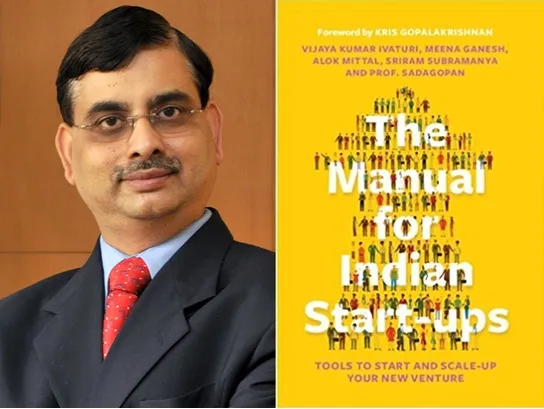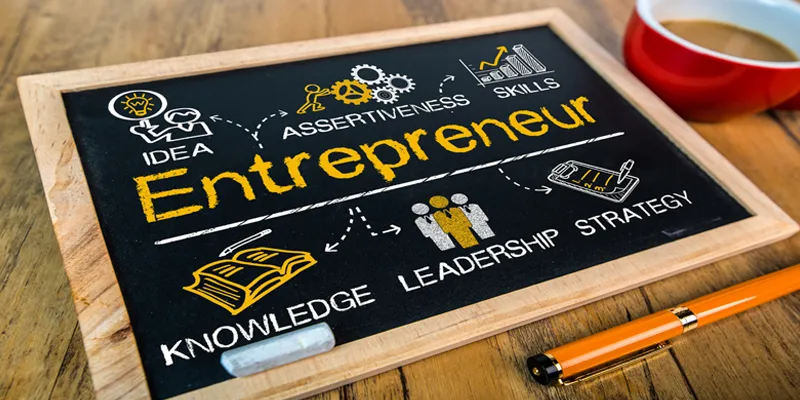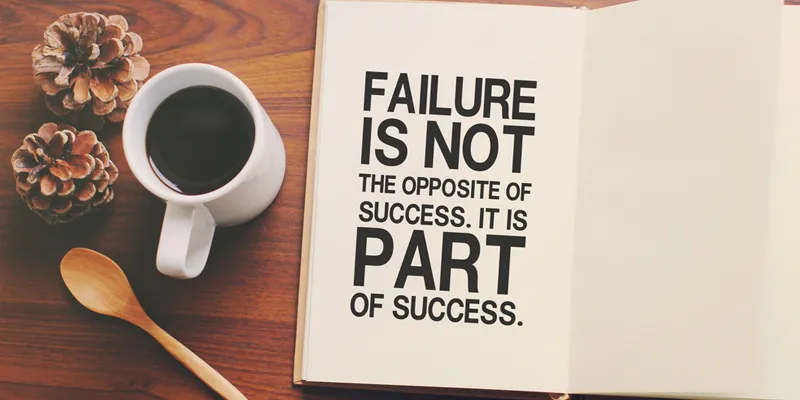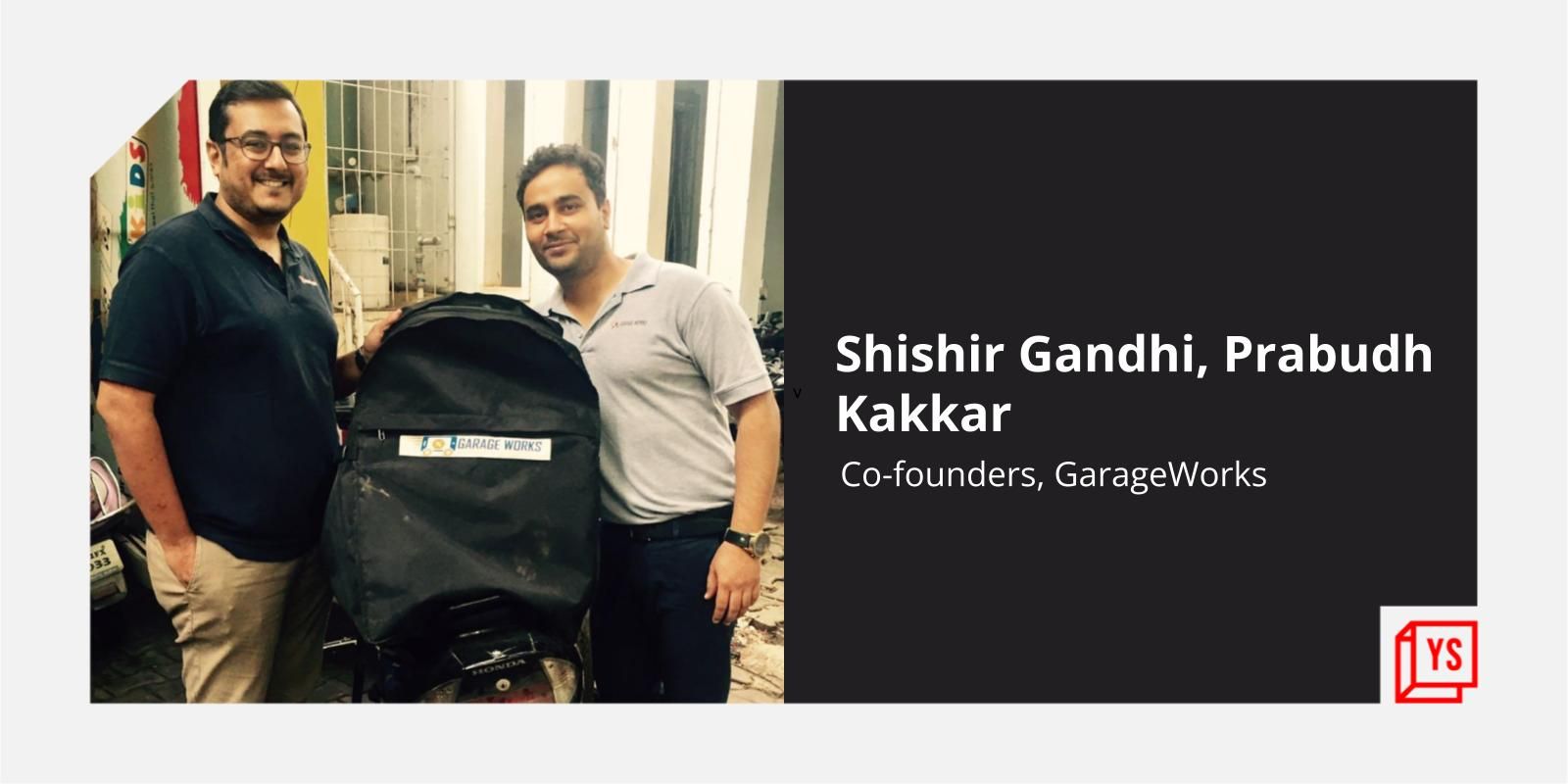‘Startup choice is not just a career choice but also a lifestyle choice’ – Vijaya Kumar Ivaturi, author, ‘The Manual for Indian Startups’
Vijaya Kumar Ivaturi (‘IVK’) is the co-author of the book The Manual for Indian Startups: Tools to Start and Scale up Your New Venture (see our book review here). He is Co-founder and CTO of Crayon Data, member of the Indian Angel Network, and former CTO and VP of Emerging Market Solutions at Wipro.

IVK joins us in this exclusive interview on startup trends in India, the qualities of successful entrepreneurs, tips for scaling up a venture, and growth enablers for India’s startup ecosystem.
YS: In the time since your book was published, what would you say are some notable new trends and developments in the startup ecosystem in India?
IVK: Founder agreements are getting popular and being insisted upon in many accelerators. Mentor engagements are also gaining traction and getting formalised in terms of agreements.
YS: A big shot leaves an IT major and launches a startup - have you started a trend in this regard? Do you see more corporate managers/leaders in India leaving to launch their own new startups?
IVK: There are many others who left earlier than me and started their own ventures. The shift is only in terms of starting product startups or joining product startups. Mid-career movements in the late 30s and 40s are also common today.
If I have to pick one more trend, I would say that it used to be the tech guys who left to start on their own but today there is a demand and motivation for India market expertise to sell to Indian consumers or corporates. Therefore, it is not always a tech person doing a product startup now.
YS: How big a role does academics play in entrepreneurship? Can entrepreneurship really be formally taught?
IVK: Well, this is a popular debate and there is a lot of academic research about this topic. It is always a deeply thought about subject whether entrepreneurship is an in-born talent; skill to be taught or an opportunity gone right for a lucky person. By keeping the luck and timing as common factors across, I would pick a blend of personality traits and process/functional/domain skills as the combo for an entrepreneur. Entrepreneurs are those who act upon an opportunity they see or foresee rather than just be knowledgeable about it. In my view, all innovators are not entrepreneurs and all entrepreneurs are not innovators.
There are some things about entrepreneurship that can be taught and make people aware of options, experiences and best practices. It is like dance or acting where there is a difference between innate talent and professional training. The hard topics such as a cash flow analysis and pricing models can be taught while soft topics such as leadership building, vision versus traction in product management, founder versus investor in scale models and other behavioral aspects are best learnt under a mentorship model. The startup system is complex in terms of these trade-offs and there is not much time or cash left to pursue multiple options or hedge your bets in that sense. As we often say, one needs a better Plan A than Plan B.
Startup promoters’ basic premise is that there is something wrong or a gap in the current system and they believe that they have got a solution to fix the gap. This is a push model where they spend time to get traction in the market for their vision. Whether they picked a wrong gap or they gave up too early is where all the debates lie and this is where you need both an academic view (logic built on historical data) and expert view (wisdom built on previous experiences and some gut feel) from the mentors.

YS: How was your book received? What were some of the responses and reactions?
IVK: It is received very well and the templates are hugely useful for them to get started. Some valuable feedback came in terms of more real world sector examples (non-IT), product management and mentor network needs based on the current scope covered in the book.
Some queries also came in for such a manual for Not for Profit segment. We are currently working on product management and mentor network models for a future release.
YS: How should innovators strike that delicate balance between ‘Stick to your vision’ and ‘Adapt to a changed world’?
IVK: From a timeline view point, one should pivot in terms of offerings and positioning and not in terms of basic motivation or inspiration for the product or solution. In my experience, the concept validation works always but it is the business validation that takes time and effort. (Is it a good idea versus Is it a good business?).
YS: Is there such a thing as the ‘ideal age’ for an entrepreneur, or can the startup bug strike you at any time?
IVK: I do not think so. It should not be driven by age but by strong passion and belief. In India, we are a family centric society and therefore, the decision to do a startup needs a careful consideration from a family point of view. This is more so when the person comes from a corporate life.
The years in which assets are being created (EMIs being paid) are the tougher years as the person’s ability to afford a change in lifestyle and income is less due to higher fixed costs. This is only a word of caution as the journey is much longer than you think and much harsher than you anticipate, and the family support is key here!
The softer side of the challenge is also the humility and empathy for dealing with much younger people and the absence of a corporate brand to get access to a lot of customers.
YS: It’s one thing to fail with a product, and a bigger dimension to fail as a company. How should founders regroup in such a situation?
IVK: Yes, this is an important distinction to make. I do see many firms failing on account of founder’s disagreements. But product failure is fine and one may need to find a different proposition to make the business tick.
The bigger issue is that the founders group thinks that they should continue with the product while the professional team in the firm thinks they should kill it. As the founders control most of these decisions in terms of money and people, they win the argument but lose the business!
This is why we always say that companies do not fail when they start but they do when they scale.

YS: What are the top three success factors for the Indian government and industry to work together and grow innovation and entrepreneurship?
IVK: This is a loaded question and needs a lot of elaboration. To put it in simple terms:
- Fairness and equity in the market place for startups, eg. qualification terms in sourcing
- Access to early stage capital and ease of raising capital. (It is almost impossible to raise money in a startup without equity dilution – debt financing is tough.)
- Support network for efficiency along the value chain. (This includes lab environment, tools, production tie-ups, new market entry, and so on - forums such as Nasscom, CII, TiE do this but there is much more to do).
YS: How can social entrepreneurs and non-profit organisations make use of your book? What modifications would you suggest?
IVK: Well, there is not much difference as many social impact ventures do look at the sustainability and scalability of the business. The only factor I would add is that social ventures take much more time for impact generation and perhaps attract a very different kind of investor.
The mentorship models in terms of engagement may differ, as many of us provide help more as a matter of good community service than anything else. So the book is still relevant for them but we had not kept them as our focus segment when we initiated the writing journey.
YS: Moving from services to products - what are some ways in which startups can manage this transition?
IVK: I would say scope control. A product company will have a defined focus, scope and boundary of operation while they may flex a bit. A service firm will pick a sub-domain and expect the customer to state what the exact requirements are and they work on custom solutions. The mindset is more of fulfilment than vision and roadmap alignment.
In a product firm, people are costs. In a service firm, people are revenue. Therefore, the concept of bench strength means something very different across product business and service business. There are many other nuances but these will be the points of shift in thinking and operating for the above transition.
YS: Moving from analytics to AI - what are some ways in which startups can manage this transition?
IVK: To give a very brief answer, I would say one should explore the use of AI in data management (entity extraction and resolution); data science layer (eg. patterns) and in the engagement layer (eg. chats).
A word of caution is to ensure that there is sufficient data volume to train these methods and figure out which combination works better. The bigger question is how much of it is going to be for a specific case and how much is used in a generic model. One should not use AI for the sake of using it!
The last mile loop in analytics is also a complex one where it is a trade-off between providing insight and providing action closure. AIs use in loop closure with action is in general limited to a specific application in most cases.

YS: Can you share some details on how Crayon Data managed its first big wins, and what tips startups can learn from this experience?
IVK: We discovered that a visionary product which is concept-led will get high appreciation but not many conversions! It took us some time to link our product pitch to something more relevant in the current context of the customer while showing them the future benefit. In a SaaS model, there is some ‘immediacy’ needed in addition to the future benefit independent of how good the product is in terms of future potential.
The other dimension of learning is about the number of sectors and geos to be in. As we are data-led, we assumed that more the sectors and geos, the better it is for our data sets and insights. While this is true, this needs to be balanced between data richness and deep insights for a customer. It is difficult to do both customer depth and geo/sector breadth at the same time. In retrospect, we should have taken these decisions earlier and saved time and effort.
At the end of the day, it is important to define or even discover what is the unit of scaling for revenue and what is that cost of scaling. We grossly underestimate the costs of data and cloud based storage and computing at scale and they can form a large chunk of the costs while staying dormant. I see this scenario in many startups where they would have done their initial work with free credits on the cloud and it starts pinching them the moment they go to production scale and once cannot pay those costs unless the SaaS revenues kick in. As many cloud providers demand credit card payments, the card keeps getting charged while the collections would not have come in. Most promoters would have used their personal credit cards for this and they will quickly max out on limits!
YS: Where do you see yourself further on down the road - becoming an investor, academic, policymaker, or starting another venture?
IVK: As one of my friends in academia put it, I am an academic lost to industry! I am involved in the policy-making side of the startup ecosystem in building collaterals and support systems for startup promoters through my work with CII, Nasscom and TiE. I am not a prolific investor though I do have some angel investments through IAN and others.
I consider myself as an industry resource for mentoring who lends his name, time and expertise to many ventures and accelerators and my day job is Crayon Data. I think I have got enough on my plate and a few years to go still before I explore anything new!
YS: What is your next book going to be about?
IVK: I am working on Product Management as a topic for the next publication along with Ms. Meena Ganesh, and we are yet to decide the format of publication.
YS: What is your parting message to the startups and aspiring entrepreneurs in our audience?
IVK: Do buyer analysis in terms of preferences, pricing, bundling and process of buying. This is one area many startups lag in terms of demand side analytics at a fine grain level.
Startup choice is not just a career choice but also a lifestyle choice. Be prepared for a longer journey. As it is going to be a long journey, it is better to have co-founders for both business and emotional support, and to make sure that your family is aware of the choice you are making or have made.












